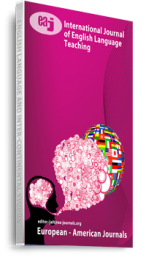In EFL college classes in Taiwan, students have often been characterized as being reluctant to voluntarily speak up. To better understand why many college students in Taiwan choose to adopt passive learning behaviors in English classes, the present study examines Taiwanese EFL college students’ willingness to communicate (WTC) in class by comparing 27 English majors and 45 non-English majors on their responses to a 65-item questionnaire adapted from three self-report measures previously administered in other studies. Interviews were conducted with eight students to gain an in-depth understanding of reasons influencing their willingness to communicate in class. The study’s findings revealed that both groups of students appeared to be more reticent in teacher-fronted class discussions and expressed higher willingness to speak up in group or pair work and discussions revolving around topics of their interest. Nevertheless, the non-English majors were generally found to be less anxious than the English majors in the English classroom, more willing and motivated to communicate in English in different classroom activities.
Keywords: EFL, Foreign language anxiety, Willingness to Communicate (WTC), attitude and motivation

